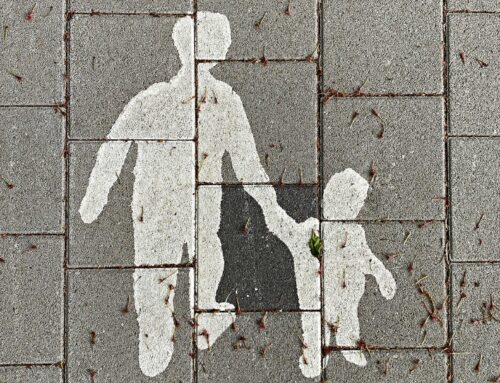
Parental alienation is a poorly defined and often exploited term in the family court system, explains Partner Michelle Uppal in Family Law Week.
Michelle’s article was published in Family Law Week, 11 October 2023, and can be read here.
The landmark case of Re GB (Part 25 Application: Parental Alienation) [2023] EWFC 150 has once again highlighted the failure of the lower courts to protect victims and survivors of domestic abuse, reinforcing the need for judicial intervention and reform. Recent case law is dense, and has led many to question whether it is now time to ban the term parental alienation and for the government to intervene to implement sorely needed changes to restore public confidence in the Family Court.
Re GB involved two children aged 12 and nine living with their mother following the parents’ separation. The parties had been embroiled in a dispute for over two years, whereby the father was having indirect contact with the children. There had already been an expert assessment where the mother was found not to have a mental health disorder, and according to the assessment the father was ascertained to have “limited insight into his ability to think reflectively and empathetically about his children”, and “elevated scores on narcissistic and histrionic personality, using coercive anger to manage his relationships”. It was recommended that he engage in psychodynamic therapeutic work.
The father accused the mother of alienating the children, who were joined by the appointment of a Children’s Guardian. He sought the instruction of a psychologist which was supported by the Guardian who made the Part 25 application for the instruction of a further expert to undertake a global assessment of the children and parents. It should be noted that the father was represented, as were the children through their Guardian, however the mother attended the hearing in person. The Judge agreed and allowed both the instruction of the expert and the questions that could be asked of them.
It was this order that the mother sought to appeal, securing a direct access barrister, Dr Charlotte Proudman. She filed her appeal on the grounds that the Judge was wrong to order a psychological assessment contrary to Re C (Parental Alienation: Instruction of Expert) [2023] EWHC 345 (Fam) and without considering the test of necessity under Part 25 of the Family Procedure Rules 2010, and that the Judge failed to give adequate reasons for ordering it.
The mother’s appeal was successful on all grounds. She proved that the decision of the lower court was wrong due to the procedural irregularity, and that it was a question of fact for the court to determine whether a child is being alienated by one parent, not the role of a psychologist. It was wrong for the expert to provide an opinion on parental alienation.
The term remains unhelpful by the fact that it has no single definition. It is well documented both in case law and by the Association of Clinical Psychologists (ACP) UK that the term is not even a diagnosable syndrome, rather a method of manipulation. The Children and Family Court Advisory and Support Service (Cafcass) states that the term defines “behaviours where one parent or carer expresses an ongoing pattern of negative attitudes about the other parent or carer and have the potential or intention to undermine or even destroy the child’s relationship with their other parent or carer”.
The President of the Family Division in the case of Re C referred to a statement from the ACP, urging family lawyers to understand and accept that like allegations of domestic abuse, parental alienation is a question of fact for the court to resolve, not a diagnosis that can or should be made by a psychologist.
The court’s permission is required to appoint an expert, who will be instructed only if it is of the opinion that the expert evidence is necessary to assist in justly resolving the case. The duty of an expert is to help the court within their expertise. These principles were set out by the President only two years before Re GB and Re C, in an October 2021 Memorandum issued to all practitioners and Judges to ensure expert opinion is based on a body of knowledge.
The difficulty lies in the regulation of such experts, with an increase in the number of those claiming to have expertise in parental alienation remaining a concern. The Family Justice Council (FJC) issued interim guidance in May 2022 and a further consultation is underway with updated guidance on responding to allegations of alienating behaviours to be issued later this year. For now, the ACP recommends that the court should identify psychologists registered with Health and Care Professions Council (HCPC) as the only relevant regulated body in the UK.
In terms of what changes the government should be making, there is a body of evidence available within the Ministry of Justice’s Harm Panel Reports and the most recent report by the Office of the Domestic Abuse Commissioner, which make renewed calls for urgent reform. These reports were written ahead of the Commissioner’s monitoring and reporting mechanism pilots and aligns with the President’s objectives for increased transparency within the courts.
The Commissioner’s report reflects on a sea change in approaches towards comprehending and addressing domestic abuse over the past three decades. This includes the introduction of the Domestic Abuse Act 2021 which has made coercive and controlling behaviour a criminal offence.
In the Commissioner’s updating report, Nicola Jacobs refers to the Three Planet Model to help understand the different agencies victims and survivors of domestic abuse must navigate. This refers to three spheres of domestic abuse: the domestic violence planet, where the police takes action against the perpetrator, the child protection planet, where the victims are expected to remove themselves and the children from the perpetrator, and the child contact planet, where the victim has removed themselves from the perpetrator and is then ordered to allow contact between the perpetrator and the children.
It is in the child contact planet where both the Domestic Abuse Commissioner and the Ministry of Justice report the systemic failings which are undermining the courts’ ability to properly assess risk to victims and children from domestic abuse.
The Harm Panel Report found that the most cited reason for children’s voices not being heard is the pro contact principle.
The view of the courts that children generally benefit from having a relationship with both parents unless contrary to the child’s best interest is broadly accepted and forms the foundations of advice in child arrangements disputes. Where there is an allegation of domestic abuse, however, and a child is demonstrating a reluctance, resistance, or refusal to spend time with the other parent, this requires full investigation.
This may well be a reasonable, defensive response to domestic abuse. Accordingly, when parents interpret this as parental alienation, the focus too often shifts away from the actual domestic abuse that has or is alleged to have occurred.
The Commissioner’s report highlights that the use of the term parental alienation is a global concern. The United Nations Committee on the Elimination of all Forms of Discrimination against Women (CEDAW) has discouraged states and parties from using the term. The European Parliament too has adopted a resolution condemning it and calling on members to prohibit its use in court proceedings.
It is also alarming that use of parental alienation as a counter allegation continues to be taken more seriously than allegations of domestic abuse. This in turn has deterred some victims from raising domestic abuse for fear of being accused of alienating the children against the other parent.
It is a fact that some separated parents may consciously or otherwise influence the mind of a child against the other parent so that the child holds a negative view of them. Cafcass state: “it is important that we are guided by evidence/findings and do not lose sight of the distinction between the child’s justified or appropriate rejection of a parent (as will sometimes be the case where the child has suffered domestic abuse) and rejection caused by deliberately alienation or unjustified behaviours.”
A good mediator will strive to get parents back to basics whether they are considering a separation or are early in the breakdown of a relationship where there are no allegations of domestic abuse. Couples are struggling with their own despair and despite knowing that they shouldn’t involve their children, they often forget the simplest of rules.
Going back to basics in advising one parent or discussing child arrangements in a mediation is crucial. Even at preschool age, children are thirsty for information when something does not feel right, which can happen overnight if a parent moves out of their bedroom and sleeps separately or where there is a physical separation, for example.
Most parents know the golden rule against arguing in front of their children, but subtle and more unjustified behaviours can creep in very quickly, and mostly unconsciously. This can include talking to their support network within earshot, timing telephone calls, differentiating what is good or bad about the other parent’s behaviour, or giving the child a choice as to whether they see the other parent.
There are more blatant, conscious examples too, such as criticising the other parent, changing arrangements without good reason, asking the child to keep secrets, or excessively questioning the child after a visit.
Explaining in simple terms how damaging this can be to a child both emotionally and psychologically is often a light bulb moment for parents. Once it is explained that a child should not be collateral damage in a breakup, real progress can be made, and appropriate support provided.
Taking time to fully investigate the facts is imperative in the context of domestic abuse. Research has shown that over 80% of legal practitioners surveyed feel that the family courts are more likely to retraumatise victims and survivors of domestic abuse. This is simply too high.
To ensure the change that is sorely needed, the Commissioner’s report sets out new plans to launch the Family Court Monitoring and Reporting Mechanism (FCMRM) pilot which will for the first time begin to lift the veil of secrecy behind which the Family Court has operated. It has been the vision of the President for some time now to improve transparency within the Family Court to restore public confidence. The FCMRM will be launched this Autumn and uncover proceedings, observe, and gather information about cases which involve domestic abuse.
Summary
Since the release of the Harm Panel Report there have been changes and recommendations have been implemented. These include pilot Pathfinder Courts in North Wales and Dorset to improve information sharing between agencies and courts, restrictions on the use of intimate images in family proceedings, prohibiting cross-examinations by defendants in family proceedings, and permitting access to the Family Court for Independent Domestic Violence Advocates and Independent Sexual Violence Advocates.
There is much more work to be done, however, and the Domestic Abuse Commissioner’s 10 recommendations for reform are a good starting point.
Amongst these is the requirement that the monitoring mechanism must be allocated sufficient funding for both its pilot phase and national roll out, that the government must establish a new HMCTS role of Domestic Abuse Best Practice Lead in every court area, and that it should divert more non-domestic abuse cases out of court.
The landmark case of Re GB emphasises the urgent need for judicial intervention in cases where parental alienation is alleged. Regulation of experts, however, is ultimately an issue for Parliament. The family courts remain overloaded and there is a lack of judicial continuity in most cases with courts unable to cope with the administration of cases – applications continue to go awry, and hearings are adjourned at the 11th hour due to judicial availability.
This case marks an important move to the court rightfully retaining control of cases and determining what is fact, rather than relying on an opinion of an expert.
It then raises the further question of whether practitioners should be calling for a ban on the term parental alienation so that it cannot be used by a perpetrator of abuse to challenge contact arrangements and shift the focus to the other parent – in this case, blaming the mother, and thus perpetuating a cycle of abuse and retraumatising victims.








